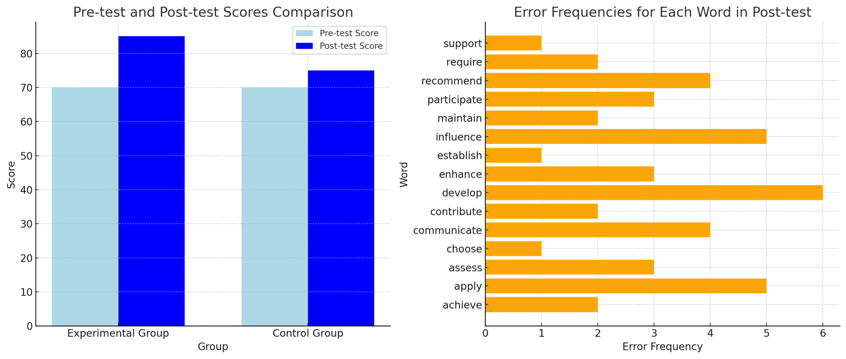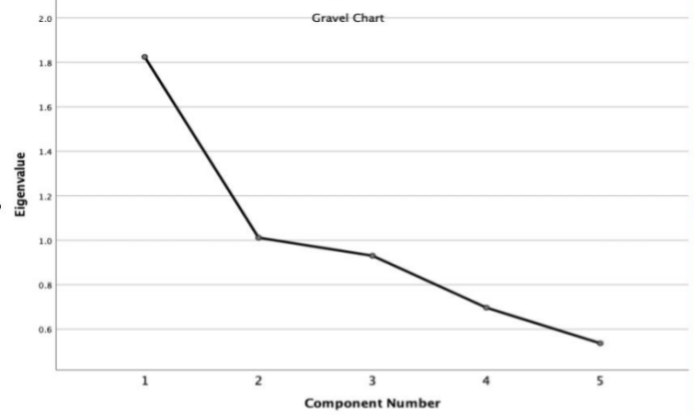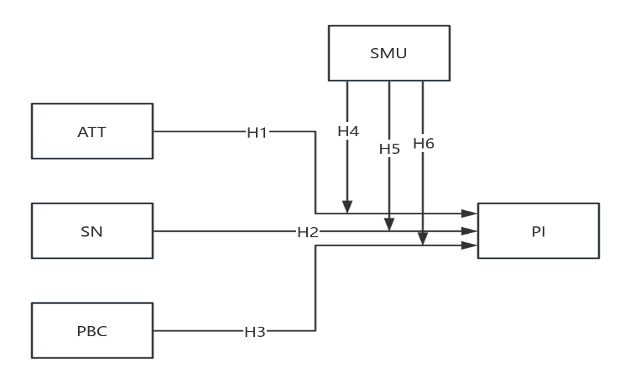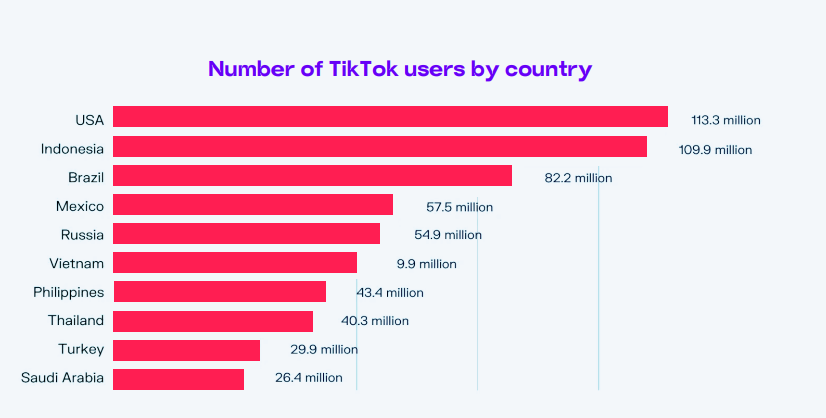

Volume 61
Published on March 2025Volume title: Proceedings of the 4th International Conference on Literature, Language, and Culture Development

This study investigates the effectiveness of AI tools as instructional supports for grammar in enhancing second language learners’ accuracy in using non-finite verb forms. The study sample comprised 60 sophomore English as a Foreign Language (EFL) students, divided into an experimental group and a control group. The experimental group received instruction via AI tools, including ChatGPT, while the control group was taught through traditional methods. Instructional content encompassed 15 primary non-finite verbs, such as infinitives, gerunds, and participles, designed to help learners flexibly apply these forms in diverse contexts. Conducted over six weeks, the study allocated the initial two weeks to introducing the foundational concepts and forms of non-finite verbs, supplemented with introductory exercises via AI tools. During the following three weeks, learners examined advanced applications, reinforced through personalized exercises provided by the AI tools, supporting accurate usage in complex sentence structures. The final week focused on review and consolidation. Pre- and post-tests measured learners’ grammatical accuracy, revealing that the experimental group showed significantly greater improvement than the control group, suggesting a clear benefit of AI tools for grammatical precision and retention. These tools offer a tailored learning experience adaptable to learners’ specific needs, fostering increased learner confidence and autonomy. This study provides a potential instructional framework for educators and empirical support for AI integration in language teaching, contributing meaningful theoretical and practical insights.

 View pdf
View pdf


This study investigates the application of psycholinguistics in workplace communication, emphasizing its influence on employee motivation, productivity, and relational dynamics. By exploring the intersection of psycholinguistics and industrial-organizational psychology, the research highlights how language shapes perception, emotion, and cognitive processing, directly impacting organizational performance. Drawing on motivational language theories and framing effects, the study reveals that strategic communication fosters inclusivity, cooperation, and a supportive culture. Tailored communication strategies, such as utilizing positive framing and culturally sensitive language, enhance employee engagement and reduce turnover. Additionally, the integration of psycholinguistic principles into managerial practices promotes relational energy, satisfaction, and innovation within diverse cultural contexts. The findings underscore the importance of investing in communication training to equip leaders with motivational language skills, enabling organizations to achieve sustainable growth while addressing modern challenges like diversity and technological advancements. This interdisciplinary approach offers a robust framework for improving workplace dynamics, combining theoretical insights with practical strategies for fostering a cohesive and high-performing organizational environment. By bridging psycholinguistics with industrial-organizational psychology, this study provides valuable recommendations for leveraging language as a transformative tool to enhance workplace outcomes.

 View pdf
View pdf



The advent of the digital age and the subsequent rise of the Internet have greatly impacted the relationship between online opinion and user discourse in the early evolution of traditional media. However, it has introduced new challenges, namely the emergence of social bots that generate and disseminate information that aims to influence public opinion. Thus, the paper attempts to decipher whether online public opinion, user discourse, and the positions of social robots in the production and dissemination of information will reinforce or change each other. Through the adoption of questionnaire survey method, 414 Internet users who understand and have contacted the human-computer account on Douyin platform as the survey object, online questionnaire survey, it screens out 414 effective questionnaires for data analysis. Besides, the samples are analyzed for reliability, correlation, exploratory factor analysis (validity analysis), linear regression analysis (mediated effects analysis), and analysis of variance using the SPSS (Statistical Product Service Solutions) tool, and the data are obtained. At the same time, combined with text analysis in qualitative research, semiotic analysis is mainly used to analyze how sample data conveys the relationship between online public opinion, user discourse, and social robots. On this basis, the results indicate that all five hypotheses presented in the paper are verified, and two new relationships are explored.

 View pdf
View pdf



With social media becoming a dominant platform, its use is frequently explored as a variable in various research contexts. Generation Z, being the digital natives, is deeply connected to social media, which has a considerable influence on their behaviors. This study examines Paid Knowledge Consumption (PKC), an emerging method of acquiring knowledge, and applies the Theory of Planned Behavior (TPB) to assess whether social media usage moderates Generation Z’s intention toward PKC. Specifically, the study investigates the moderating role of social media use in the relationships between attitude, social norms, perceived behavioral control, and intention to engage in PKC. Data were collected from a sample of 211 Generation Z respondents using a quantitative research approach. Regression and moderation analyses were conducted after confirming model fit indices and Cronbach's alpha reliability. The regression analysis indicated that attitude, social norms, and perceived behavioral control significantly influenced PKC intention. However, the moderation analysis revealed that social media usage did not significantly moderate the relationship between the independent variables (attitude, social norms, perceived behavioral control) and PKC intention. These findings suggest that social media use does not affect Generation Z's intention to engage in PKC through its influence on these key factors.

 View pdf
View pdf


With the research on gender issues for a long time, women's studies have become very mature in all aspects. Although the theory is rich, there is still little concrete practical progress. This article focuses on the analysis of the perspective of female writers and looks at the current situation of women's life from their perspective. By perusing a considerable number of literary works, this paper selects four female writers and conducts an analysis of their representative works to elucidate three types of female survival predicaments: the absence of female desires, the absence of a female voice, and the presence of female objectification. By analyzing the works of these female writers, an obvious problem was reflected: the living conditions of women described in their books are still outdated in today's society. Until now, many women's desires have been ignored. Even as a gender that makes up half of the population, many important works lack a female perspective, and the image of women is still objectified, not only in literature and movie works, but also in real life.

 View pdf
View pdf



With the popularity of social media platforms, recommendation algorithms play an important role in user content exposure. However, while the personalized recommendation mechanism of the algorithm may promote cross-cultural communication and understanding, it could also strengthen information barriers and affect users' cultural cognition and cross-cultural communication ability. This paper focuses on TikTok's recommendation algorithm and uses a related studies analysis method to explore its impact on multicultural content exposure and cross-cultural communication. According to the findings of numerous related studies, TikTok's algorithm enhances the probability of users being exposed to specific cultural content through strengthening interest - based matching. Moreover, TikTok's algorithm restricts the extensive dissemination of cross - cultural content on account of its "loneliness effect", thus diminishing the depth and quality of cross - cultural understanding. This paper has revealed the two-sided nature of recommendation algorithms in cross-cultural communication and provides inspiration for improving algorithm design and promoting cross-cultural communication.

 View pdf
View pdf


Since Google introduced the Transformer model into natural language processing (NLP) in 2017, AI-aided translation has rapidly advanced. At the same time, translation is evolving from a solitary endeavor into a cooperative activity between human translators and machine translation systems, epitomized by the emergency of platforms with the Machine Translation Post Editing (MTPE) function. The advent of new translation modes also leads to increased research evaluating the effectiveness and quality of machine translation, for example, studies on the translation quality under the Multidimensional Quality Metrics (MQM) error typology framework. Involving AI-based translators and MTPE in their translation enables human translators to prepare the engineering documents efficiently. However, researchers notice that it is difficult for most machine translators to figure out the semantic and cultural differences in the source language and generate coherent structural translation in the target language. This research opens up ChatGPT’s application in tender document translation under the MQM framework, hoping to cast light on assessment on ChatGPT's translation quality, identification of ChatGPT's errors in translating such documents and suggestions on human translators' performance throughout MTPE.

 View pdf
View pdf


While extensive research has explored English teaching methods in urban China, their applicability and effectiveness in rural areas remain underexamined. This study addresses this gap by analyzing the challenges and effectiveness of mainstream methods such as Grammar-Translation Method (GTM), Communicative Language Teaching (CLT), and Task-Based Language Teaching (TBLT) in economically disadvantaged regions. The research utilizes theoretical analysis, drawing on secondary data from prior studies and applying frameworks like Krashen’s Input Hypothesis and Vygotsky’s Sociocultural Theory. It examines rural students' learning environments, including resource deficiencies, underqualified teachers, and limited English exposure. The findings indicate that while GTM is effective for improving grammar and reading, it fails to build communicative competence or sustain student motivation. CLT and TBLT show potential but are constrained by resource and expertise deficiencies prevalent in rural settings. The study concludes that integrating online technology, enhancing teacher training, and fostering community-based initiatives could improve the efficacy of English teaching in rural China, bridging the educational gap between urban and rural areas.

 View pdf
View pdf


In the context of globalization, subtitle translation plays a pivotal role in cultural exchange. This paper focuses on the multimodal subtitle translation of the movie Chang'an 30000 Miles. Given the importance of subtitle translation for cultural exchange under globalization and the shortcomings of existing research in specific cultural contexts, qualitative analysis of audience acceptance, and evaluation of translation strategy effectiveness, this study explores the audience's acceptance of different translation strategies and their influencing factors, as well as the flexibility of strategy selection and audience differences. The findings revealed that multimodal subtitle translation could significantly boost the cultural dissemination impact of films, and audiences do appreciate the merits of varied strategies. For instance, based on audience feedback, a hybrid strategy combining literal and free translation was recommended. Looking ahead, future research could expand and deepen from multiple perspectives, be it theoretical refinement or practical application improvement, to further elevate the quality of subtitle translation.

 View pdf
View pdf


This essay examines the 2024 animal documentary Queens through a feminist lens. Against the backdrop of traditional storytelling dominated by androcentric perspectives, feminist scholars have long advocated for the creation of female-centered narratives to reclaim agency and challenge gendered norms. As both an educational and artistic work, Queens contributes to the practice of gynocentric storytelling in contemporary media. By showcasing matriarchal societies across various animal species, the documentary provides a narrative centered on female perspectives. This essay analyzes how the stories in Queens celebrate the power and qualities of femininity through the portrayal of anthropomorphic animal characters and female animal workers in real life. It also compares the narration of Queens with that of other wildlife documentaries and examines the Chinese translation to illustrate how language constructs female subjectivity. Finally, the essay identifies unresolved issues and controversies within the documentary and proposes directions for future feminist creators to advance matriarchal narratives further.

 View pdf
View pdf




